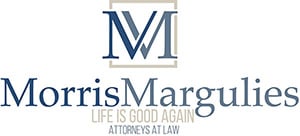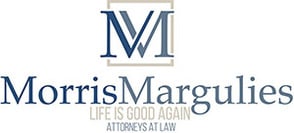
We are bombarded by the advertisements on television and radio by so called “debt resolution” services or “debt settlement” programs. The basic idea for all of these companies is the same: they promise to put you into a repayment program and settle your debts for pennies on the dollar. Many people view this as the more “moral” thing to do because they believe they are at least trying to repay their debts. But instead, they have made themselves vulnerable to further financial harm. Our office is filled everyday with clients who have spent thousands of their hard-earned dollars to “settle” debts only to find themselves being sued and having their wages garnished by their creditors and their fees taken by the debt settlement company for doing nothing. After a great deal of lost time and money, our clients find themselves in the position of filing for bankruptcy anyway. If they had talked to us first, they would have saved themselves a lot of frustration.
Debt settlement companies work by having you stop paying your creditors and paying them instead. Once your initial fee for their services is paid, which is usually at least $2,000, they will start accumulating your payments in an escrow account. Once enough has been accumulated (in their judgment) they begin reaching out to your creditors to attempt to settle the debts. There are several problems with this scenario. First of all, your creditors have no obligation to deal with these firms. They can decide to sue you anyway to collect the debt. Second, even if your debt is settled for “pennies on the dollar,” your creditor could still send a Form 1099 Misc. to the Internal Revenue Service reporting the forgiven debt as “income” on which you must pay taxes. You think you were in trouble with your creditors? How about being in trouble with the IRS?
However, if you file a Chapter 7 bankruptcy, for example, not only will most of your debts be discharged, but the 1099 statement will not result in a tax liability because debts discharged in bankruptcy are not taxable. In addition, filing for bankruptcy stops all lawsuits, foreclosure, garnishments, repossession and other collection efforts against you the moment your case is filed, as a result of what is called the “automatic stay.” Participating in a debt settlement program will not stop any collection attempts, leaving you vulnerable to your creditors while you are undergoing financial hardship.
Bankruptcy provides a “fresh start” to debtors under Chapter 7 or allows debtors to reorganize their debts under Chapter 13 with a court-ordered repayment plan, which protects you from your creditors during the repayment period. Although some people hesitate to file for bankruptcy because they would prefer to repay their debts, this honest desire is often exploited by those looking to make a quick buck.
As stated by the U.S. Supreme Court, the purpose of bankruptcy is to give the “honest but unfortunate debtor… a new opportunity in life and a clear field for future effort, unhampered by the pressure and discouragement of preexisting debt.” Local Loan Co. v. Hunt, 292 U.S. 234, 244 (1934).
The attorneys at the law firm of Margulies & Associates, LLC have assisted thousands of clients through bankruptcy. Please call us for a consultation today. Laura Margulies is a principal and Fred Nix is an associate in the law firm of Laura Margulies & Associates, LLC. We represent consumers in bankruptcy and litigation matters in Maryland and the District of Columbia. To learn more about our firm visit our web site at www.law-margulies.com.

